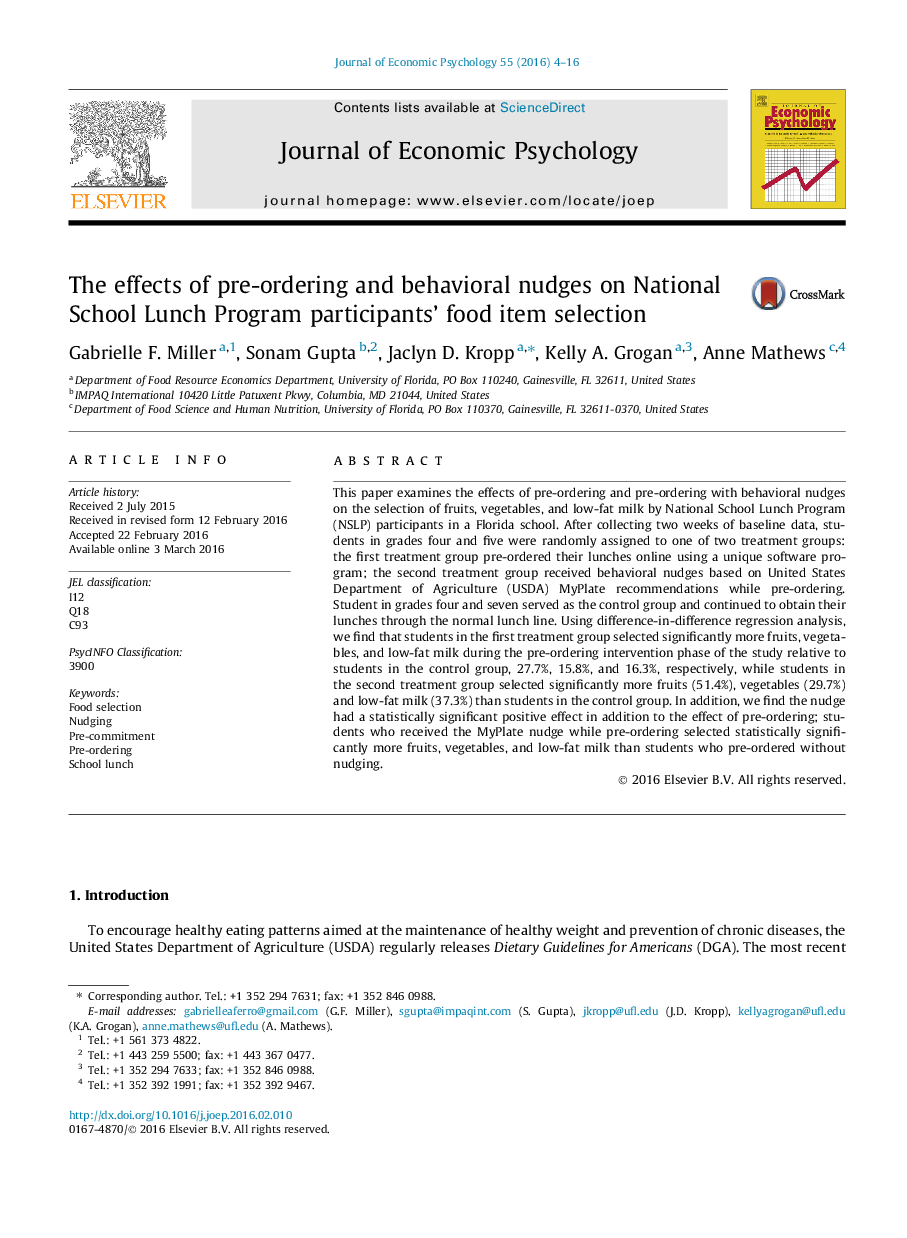| Article ID | Journal | Published Year | Pages | File Type |
|---|---|---|---|---|
| 884870 | Journal of Economic Psychology | 2016 | 13 Pages |
•We examined the effects of pre-ordering and nudging on school lunch item selection.•Meal composition data were collected for National School Lunch Program participants.•Two treatments were administered: pre-ordering and pre-ordering with nudging.•Students who pre-ordered meals selected significantly more fruits, vegetables, and low-fat milk.•Nudging further increased the selection of fruits, vegetables, and low-fat milk.
This paper examines the effects of pre-ordering and pre-ordering with behavioral nudges on the selection of fruits, vegetables, and low-fat milk by National School Lunch Program (NSLP) participants in a Florida school. After collecting two weeks of baseline data, students in grades four and five were randomly assigned to one of two treatment groups: the first treatment group pre-ordered their lunches online using a unique software program; the second treatment group received behavioral nudges based on United States Department of Agriculture (USDA) MyPlate recommendations while pre-ordering. Student in grades four and seven served as the control group and continued to obtain their lunches through the normal lunch line. Using difference-in-difference regression analysis, we find that students in the first treatment group selected significantly more fruits, vegetables, and low-fat milk during the pre-ordering intervention phase of the study relative to students in the control group, 27.7%, 15.8%, and 16.3%, respectively, while students in the second treatment group selected significantly more fruits (51.4%), vegetables (29.7%) and low-fat milk (37.3%) than students in the control group. In addition, we find the nudge had a statistically significant positive effect in addition to the effect of pre-ordering; students who received the MyPlate nudge while pre-ordering selected statistically significantly more fruits, vegetables, and low-fat milk than students who pre-ordered without nudging.
